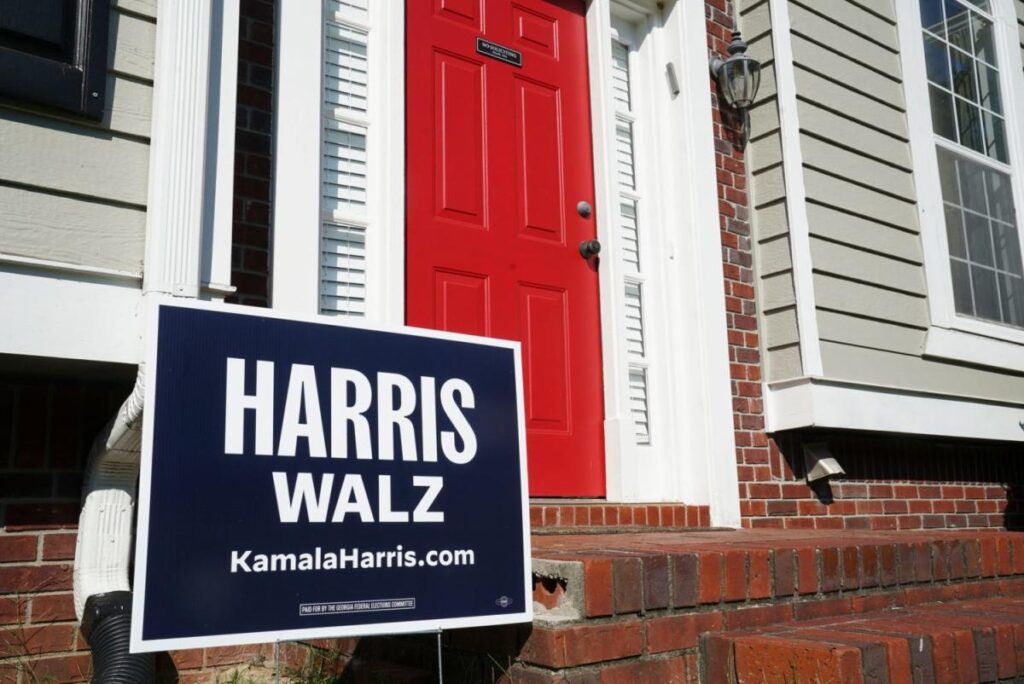In the realm of political campaigns, the phenomenon of sign stealing has become a troubling manifestation of unethical behavior that undermines the democratic process. A recent incident involving the theft of Harris-Walz campaign signs in certain neighborhoods of Riverlea and Worthington exemplifies this issue. The actions of those responsible for removing these signs speak volumes about the state of political decorum. Such behavior suggests that the candidate they support is struggling to garner legitimate support as Election Day approaches. More importantly, it reveals a willingness to prioritize winning over integrity, reflecting a broader trend in politics where ethical lines are blurred in the pursuit of victory.
The act of stealing campaign signs is more than just a petty crime; it represents a significant infringement upon the fundamental principle of free speech. Campaign signs serve as a crucial vehicle for candidates to communicate their messages and promote their platforms within their communities. When individuals resort to vandalism or theft of such property, they undermine the democratic process and disregard the rights of others. This situation raises an even larger question: what drives supporters to engage in such unscrupulous tactics? It suggests an environment where fear of losing prompts desperate actions, rather than an embrace of healthy competition and public discourse.
The implications of such incidents extend beyond the immediate victims of the theft. They contribute to a culture of negativity and hostility in political engagements, making it increasingly challenging for constituents to trust the electoral process. Voters may become disillusioned, discouraged from participating in a system where they feel that their voices can be so easily silenced or undermined. This kind of behavior can further polarize communities, fostering distrust among neighbors and chipping away at the social fabric that is essential for a functioning democracy.
One cannot help but wonder about the mindset of the individuals participating in this kind of behavior. The query posed by Jeff Amick in his letter, which hinted at the possibility of the thieves wearing “MAGA hats,” symbolizes a broader concern regarding the extremes to which partisan supporters may go in order to champion their causes. It serves as a poignant reminder of how loyalty to a candidate can sometimes cloud ethical judgment, leading individuals to sacrifice their values in pursuit of perceived loyalty to a cause. Such actions reflect a troubling narrative that emphasizes winning at any cost, which is detrimental not only to the spirit of fair play but also to the values that underpin democratic processes.
Moreover, the argument that these actions denote a candidate’s desperation is significant in understanding the motivations behind this kind of vandalism. When supporters resort to underhanded methods of securing an advantage, it indicates a lack of confidence in their candidate’s ability to succeed on the merits of their policies and vision. This situation can create a vicious cycle wherein candidates feel pressured to perpetuate aggressive tactics in order to shore up lackluster support. Such shortcuts ultimately detract from the greater discourse and diminish the overall quality of political engagement.
In conclusion, the theft of Harris-Walz campaign signs not only constitutes an isolated incident of vandalism but also serves as a poignant reminder of the ethical challenges that pervade modern political campaigns. These actions highlight a troubling trend where the principles of fair play and respect for free speech are compromised in favor of desperate attempts to achieve victory. It is essential for voters to reflect on these behaviors and advocate for a more honorable approach to political participation, underscoring the importance of integrity and honest competition in the democratic process. As Election Day approaches, it becomes increasingly essential for each participant in democracy to reaffirm their commitment to these fundamental values, ensuring that the electoral process remains a forum for genuine engagement rather than a battleground for unethical tactics.

